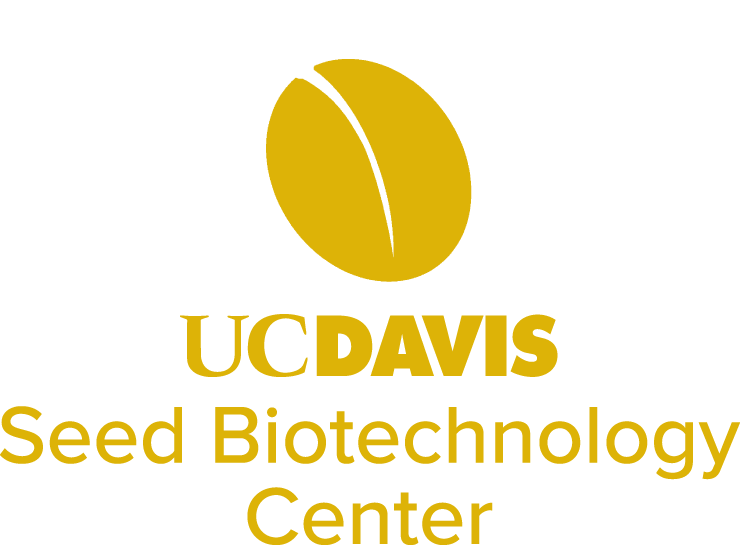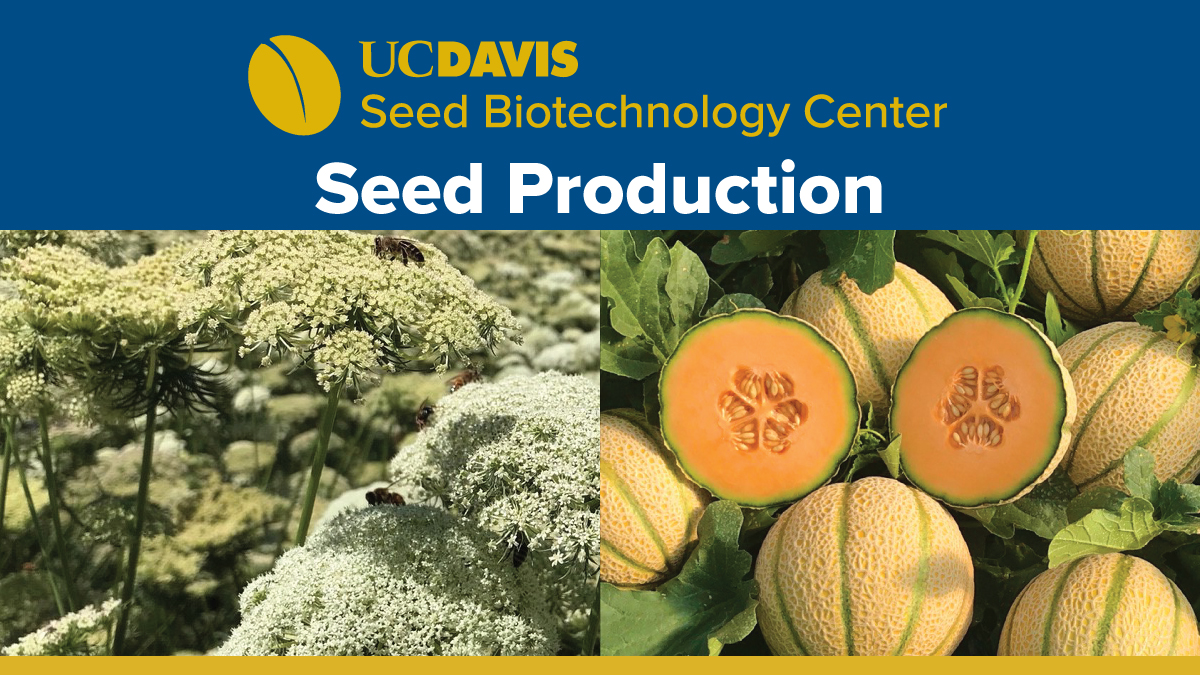
Distinguished instructors, including Mike Pereira, John Snelling, Imtiyaz Khanday, and UC Davis Plant Breeding Academy Director Jovan Djordjevic will return to deliver this exceptional course. Designed for seed production professionals and individuals seeking comprehensive knowledge in seed production, cultivation, management, and seed processing, as well as those seed professionals in other disciplines who interact with and are affected by seed production, this course offers an unrivaled opportunity to acquire practical expertise and understanding.
Participants will gain insights into the biology of seeds, the main sub-components of seed production, and effective crop management practices for a wide range of crops. Comprehensive coverage spans wet-seeded vegetables cucurbits, tomatoes, dry-seeded vegetables brassicas, carrots, onions, and lettuce, and agronomic crops field corn, soybeans, canola, grains, hemp and sunflower. We will also present organic seed production methodologies engage participants in breakout sessions to further discuss contemporary topics in seed production. Indulge in a transformative learning experience that will empower you in the dynamic field of seed production. Enroll today and join us in shaping the future of our seed industry.
March 2 - 5, 2026
In-Person at UC Davis
3.5 days of instruction:
Mon: 1:00p.m. - 5:00p.m.
Tues-Thurs: 8:00 a.m. - 5:00 p.m.
Schedule above is subject to change; All times are in Pacific time zone (PST)
Early Registration: $2250
Regular Registration: $2600
(Early Registration ends February 2, 2026)
Tuition includes all course materials, lunches and breaks. Class size is limited so early registration is recommended.
REGISTER
Available Discounts:
25% off - Faculty (from regular registration)
50% off - Current Grad students/Postdocs (from regular registration)
Contact us for more information about your discount.
► Hotel Recommendation:
Hyatt Place - Click "BOOK" button to reserve with the special SBC rate ($145). Rate only available until February 2.
Contact us if you need assistance.
► Course Location:
UC Davis Walter A. Buehler Alumni Center:
530 Alumni Ln
Davis, CA 95616
► Campus Parking information (additional parking information will be emailed to participants before the course)
Course Curriculum:
• Flowering, pollination, seed maturation and development
• Hybrid and parent seed production
• Genetic purity
• Disease management
• Production factors influencing seed quality
• Specific practices for each crop (vegetables, corn, canola)
• Harvesting
• Conditioning
• Enhancement
• Storage
Guest Presenters:
Tye Anderson - Head of Global Seed Production, SSV, Syngenta
Tony Sandoval - Production Manager, Seeds by Design/Terra Organics
Wayne Wiebe - Director Quality Assurance, HM.Clause, AMPA Region
Rale Gjuric - Former Head of Canada Seed R&D, Farmer's Business Network and Founder, HAPLOTECH Inc.
Mike Edwards - Southwest Production Zone Manager, Sakata Seeds America
Elina Nino - Cooperative Extension Specialist, UC Davis
Jim Schweigert - President, Gro Alliance LLC
Pedro Bello - Seed Technology Scientist
Core Instructors:
This course is taught by experts from both industry and academia. This is a great chance to interact with experts in the field.
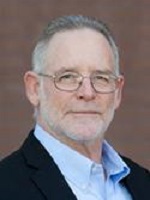
Mike Pereira, Principal Consultant, Granum Services, LLC, has 45 years of experience in seed production, the majority of which was focused on vegetable seed production, but also more recent experience in biofuels and stevia seed production. Mike has extensive experience in leading global seed production organizations and establishing new production areas around the world. In biofuels, he established the first hybrid seed system for Miscanthus, an ethanol feedstock, and directed hybrid seed production and plantation research of Jatropha, a diesel and jet fuel feedstock. Currently, Mike consults in seeds and alternative crops through his company, Granum Services, LLC. He also is Chief Agronomist for Finistere Ventures, a leading venture capital company in agricultural technology, and is the lead instructor for three short courses for seed professionals through the Seed Biotechnology Center of UC Davis, Seed Business 101 – Horticulture, Seed Production, and Seed Biology, Quality and Pathology.
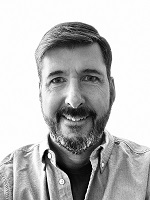
John Snelling, founder and General Manager of Rogue Seed and Managing Director of Verisem North America has 35 years of experience with vegetable and forage seeds in the Pacific Northwest, California, and globally. His experience at Rogers Seed, Seminis Vegetable Seeds, and Nunhems Vegetable Seeds focused on operations supply and strategic business management. He has held diverse roles, from Fieldman to Regional QA Director, Global Production Lead, and Global Head of Seed Supply. He has worked with many species of seed crops, including onion, carrot, lettuce, spinach, peas, beans, sweet corn, alfalfa, and other minor vegetable and forage crops. John is the past chair of the ASTA Seed Treatment and Environmental committee and also served on the ISF committee of the same name. John received his B.S. degree in Botany from UC Davis and his M.S. degree in Seed Production and Technology from Oregon State.

Imtiyaz Khanday joined the Department of Plant Sciences as an Assistant Professor of Plant Reproductive Biology in July 2021. He serves as the Director of Research for Seed Biotechnology Center. Imtiyaz obtained his Ph.D. in plant development and genetics from the Indian Institute of Science, Bangalore. Before joining Plant Sciences, he was a postdoc here in the Department of Plant Biology. As a postdoc, Imtiyaz translated the understanding of a mechanism of embryo initiation he uncovered in rice, into a method of clonal propagation through seeds or synthetic apomixis. His research interests include understanding seed development in cereals, the extension of clonal seed propagation to vegetable crops, and exploring ways to enhance seed vigor.
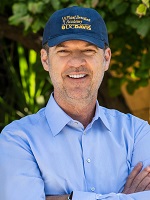
Dr. Jovan Djordjevic is a plant breeder and entrepreneur with over 30 years of experience in the global seed industry. His career began in 1996 with Monsanto France as a corn breeder, where he built a strong foundation in hybrid breeding. In 2005, he moved to Canada to lead canola hybrid breeding, playing a key role in transitioning the crop from open-pollinated to hybrid varieties. In 2010, Jovan relocated to California—agriculture’s Silicon Valley—where he served as Global Cucurbits Breeding Director for Nunhems.
Over the course of his prolific career, he has contributed to the release of more than 200 hybrid varieties across crops such as corn, canola, tomato, pepper, sweet corn, watermelon, melon, cucumber, onion, carrot, and leek.
Jovan currently serves as Director of the UC Davis Plant Breeding Academy, where he mentors the next generation of breeders and seed professionals. He also chairs the Plant Breeding Committee for the California Seed Association.
He is a seed business owner, co-founder, and board director at Murray River Seed Co, where he remains hands-on in breeding watermelon and melon. He believes that passionate people, working closely with growers, can truly transform the produce industry for the better.
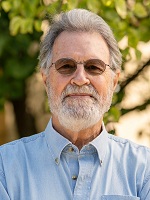
Kent J. Bradford, Professor Emeritus, Department of Plant Sciences and former Director of the Seed Biotechnology Center, University of California, Davis, CA, USA. Kent received B.S. and M.S. degrees in Biochemistry and Horticulture from Michigan State University and received his Ph.D. in Plant Physiology from UC Davis in 1981. Kent was the founding Director of the Seed Biotechnology Center, interim Director of the World Food Center, and a professor in the Department of Plant Sciences at UC Davis prior to his retirement in 2019. Dr. Bradford’s research focused on the development, maintenance, and expression of seed quality, and he continues to contribute to the outreach, education, and research activities of the Center.
Questions? Contact Louise Lee at lelee@ucdavis.edu
